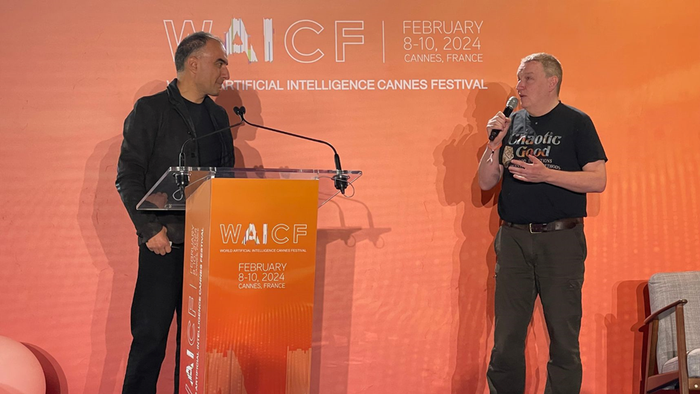Meta, Hugging Face, AMD: AI's Future Must Be Open Source
Yann LeCun, Meta's chief AI scientist, believes the future will largely be open source

At a Glance
- Meta's Chief AI Scientist Yann LeCun believes open AI models will dominate in the future, at the World AI Cannes Festival.
- Meanwhile, Hugging Face partners with AMD to boost open AI development.
Open source AI is among the top topics at the World AI Cannes Festival, with leading experts agreeing that this approach needs to underpin the future of AI.
Chief among its supporters is Yann LeCun, Meta’s chief AI scientist, who said that the future of AI “must be open source.”
On the opening day of the conference, LeCun said AI needs to be open source in the same way as the infrastructure of the internet is open source – so everyone can access it.
He argued that open source platforms are “safer, more bug-free, customizable for the industry to build on top of.”
LeCun believes AI will largely become open source, but added that it does not mean there is no space for commercial platforms.
Targeting the EU AI Act
One major impact on open source AI could be regulation hitting developers.
LeCun warned that governments have to make sure that prospective regulations “do not regulate open source AI platforms out of existence.”
However, one piece of legislation set to become reality caught his ire: The EU AI Act.
LeCun said that the legislation was “not entirely clear” on whether open source platforms will not be subject to heavy regulation.
“It's fine for a company like Meta who are regulated already. It's not fine for small startups who just don't have the means to comply with those things.”
In a later talk, LeCun said that trying to regulate to prevent what he called “imaginary” existential risks would lead to this real risk: “We're not going to have beneficial AI; we're not going to have an AI industry.”
He argued that it was companies building AI systems secretively are the ones lobbying governments to regulate open source AI “out of existence by trying to convince governments that there are existential risks, which doesn't exist.”
Is Hugging Face the answer?
LeCun proposed that to ensure open source AI becomes a reality, a crowdsource platform that allows anyone to access and fine-tune AI systems needs to emerge.
Open source site Hugging Face is the closest to such a platform. There, researchers and developer groups can publish their models, datasets and benchmarks for the wider AI community to try.
Julien Simon, Hugging Face’s chief evangelist, said the number of models available on the site was “dangerously close” to 500,000, with some 100,000 datasets also available.
Simon said Hugging Face keeps closed model developers on their toes, adding, “state of the art right now is open source, not the closed models.”
However, issues are hampering open source development, with Simon chiefly pointing to what he called “a de facto monopoly” on compute.
Hugging Face enjoys partnerships with most major cloud and hardware players to try and ease this bottleneck. At Cannes, the platform showcased its work with AMD, including that all models available on Hugging Face run on AMD accelerators today.
“It is critical that we get more chips out there, that we get more cost performance to users because this is the only way we can continue fostering innovation,” Simon said.

From left: AMD's Ramine Roane and Hugging Face's Julien Simon
Simon was joined on stage by Ramine Roane, corporate vice president for AI at AMD.
Roane said that the only way to make progress in AI is through “open teamwork, not just to accelerate innovation, but also to ensure safe and ethical development.
AMD provides the hardware that powers major supercomputing systems like Frontier and El Capitan. Roane said that the universities and national labs housing these systems “demand” open source solutions.
“They want to collaborate with other universities and national labs. So they want to be able to contribute to the software,” he said. “And the other thing is for just safety and security reasons they want to they want to see what's in it.”
The AMD executive also highlighted that it was the open source community leading the charge in the small model space, reproducing and shrinking larger systems, “even making them better for specific tasks.”
About the Author(s)
You May Also Like


.jpg?width=700&auto=webp&quality=80&disable=upscale)
.jpg?width=700&auto=webp&quality=80&disable=upscale)
.jpg?width=700&auto=webp&quality=80&disable=upscale)
.jpg?width=300&auto=webp&quality=80&disable=upscale)
.jpg?width=300&auto=webp&quality=80&disable=upscale)
.jpg?width=300&auto=webp&quality=80&disable=upscale)
.jpg?width=300&auto=webp&quality=80&disable=upscale)
.jpg?width=300&auto=webp&quality=80&disable=upscale)